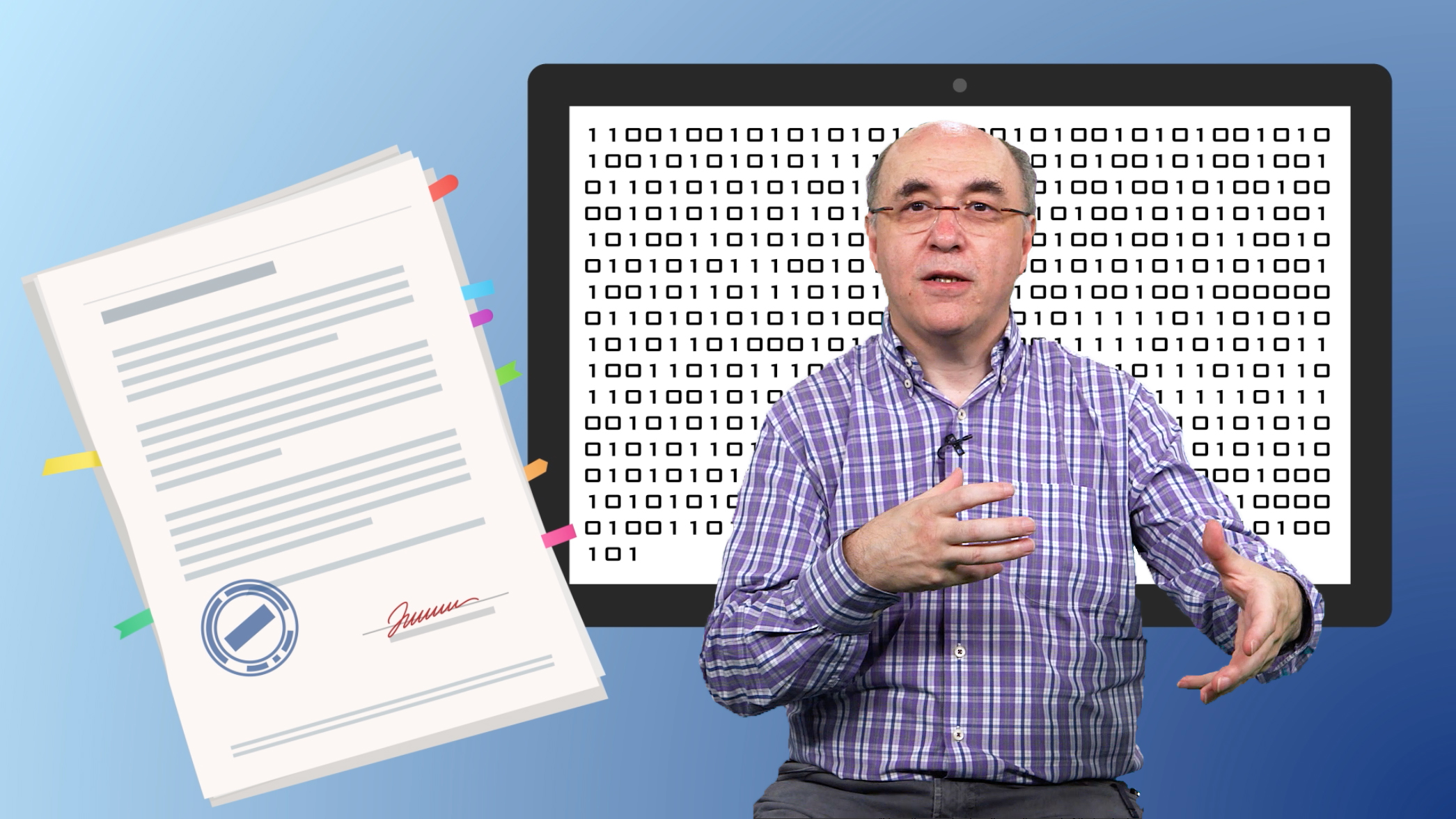Following is a transcript of the video.
Stephen Wolfram: I think one of the most interesting ideas that blockchain is surfacing is the idea of computational contracts. You know, normally when one sets up a contract, it’s something that’s written in, well, almost English, but actually it’s legalese because it has to be a bit more precise than English. And it says, you know, this party is going to do this, and that party is going to do that. What if we could write that contract in code? What if we could write a computational contract that isn’t written in legalese, but is written in some computational intelligence language, which could actually be just executed by a computer if we chose to, as well as understood by humans? Well, our Wolfram Language, that I’ve been developing for the last 32 years, is sort of the ideal language in which to describe things about the world of the kind that you want to talk about in contracts.
This idea of writing computational contracts, this is not a new idea. I mean, for example, Gottfried Leibniz, back in the late 1600s, he very definitely had this idea. In fact, it was his reason to try to invent a bunch of what are now computational concepts, was he wanted to turn all legal arguments into matters of pure logic that could potentially be resolved by a machine. Well, he happened to be 300 years too early. Now I think it’s kind of the right time to actually execute things like that, and so we’re very well-positioned with our technology to actually set up computational contracts, which can describe how things should happen in the world in a way that computers can execute. And so some of those things will be pure sort of symbolic logic-like things.
Some of those things are more like automated human judgment. They’re more like the kinds of things that one can do with machine learning where one says, you know, “We’ll consider it a grade A peach if it has this characteristic with respect to this machine vision classifier.” So that’s one thing that we’ve been interested in. Another thing that’s, in a sense, more direct is whenever you’re going to set up a smart contract or computational contract, I view sort of computational contracts as kind of a generalization of the traditional let’s put something on the blockchain smart contract idea. But as soon as those contracts are going to be about real things in the world, they have to know something about what actually happened in the world.
And so there's this idea of well, we needed some kind of smart oracle that can be connected to the contract that can be not just something that says, "Well, this piece of cryptocurrency was transferred from this address to this address, but you know, it rained yesterday." And so we, in terms of sort of knowledge about the world with our Wolfram Alpha technology stack, we have simply the unique system that has kind of, across thousands of domains, kind of computable knowledge about the world. For quite other reasons, we've kind of built this thing that allows you to just ask a computer some fact about the world and have it returned in computable form. And that's exactly what one needs if one wants to know whether this smart contract that referred to something in the world should be executed, should go this way or that way.
And so we've been involved with rather a wide spectrum of the cryptocurrency folk in providing sort of the connection to the real world, so to speak, for things like smart contracts.
